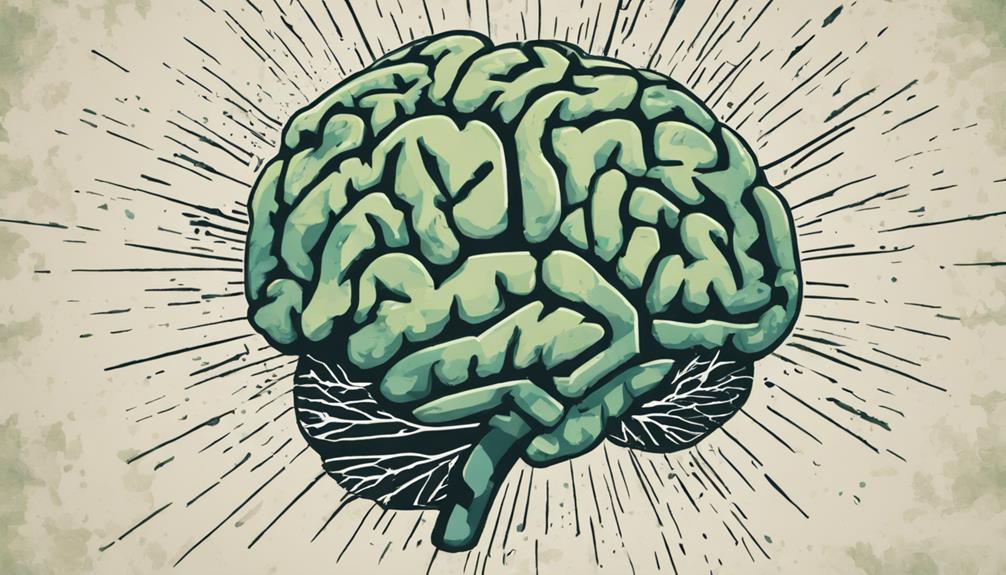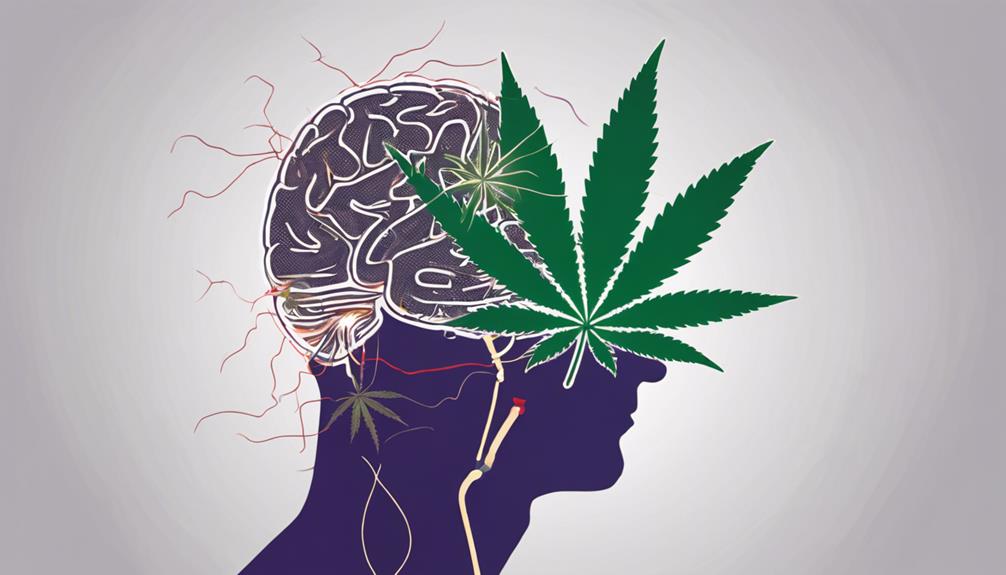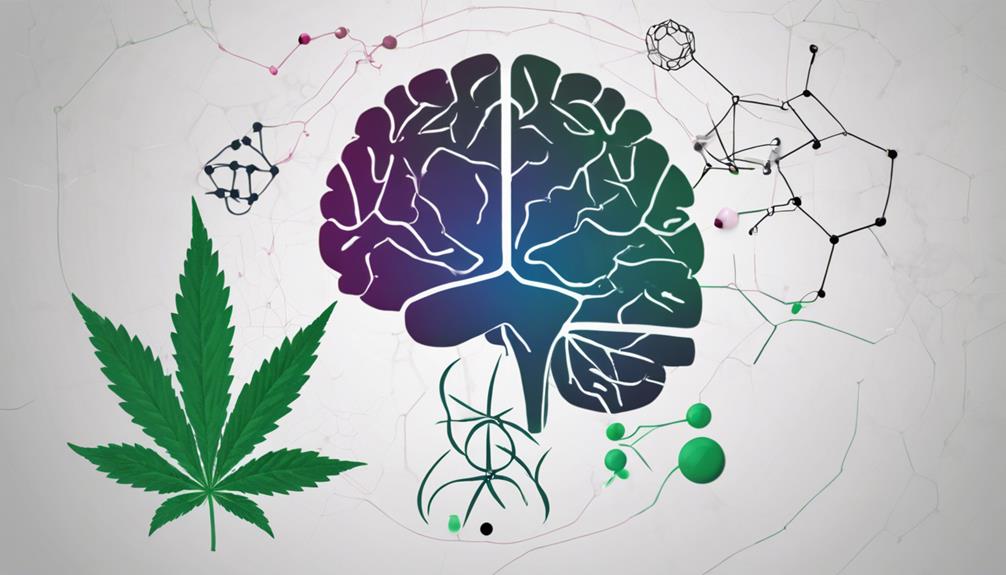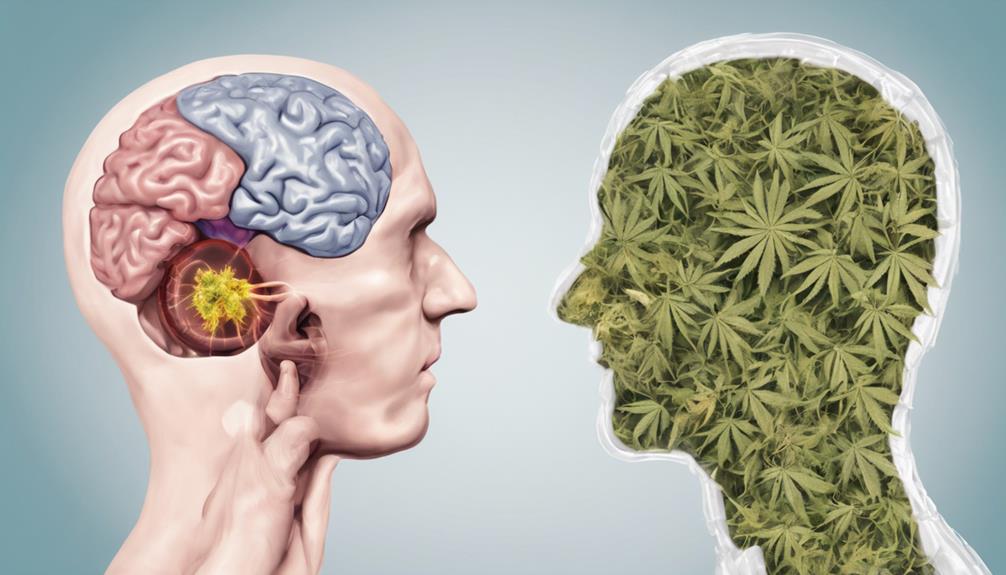You’ve likely heard about the rise of medical marijuana in healthcare, but did you know it’s becoming a key player in managing severe epilepsy? With its potential to control seizures more effectively and several studies backing its efficacy, it’s gaining ground over traditional antiepileptic drugs. What makes it so promising, and how does it compare to existing treatments regarding side effects? Let’s explore this topic further and understand how this unconventional treatment could revolutionize epilepsy care.
Understanding Severe Epilepsy

Severe epilepsy is a life-changing neurological disorder that affects millions globally. It doesn’t differentiate between children and adults alike. Characterized by frequent, unprovoked seizures, it poses a significant danger to an individual’s quality of life. The neurological impact is profound, often leaving patients feeling isolated, anxious, and depressed.
Seizures aren’t random occurrences; they’re usually triggered by specific factors such as stress, lack of sleep, illness or certain foods. Identifying and avoiding these triggers can help manage epilepsy to some extent but isn’t a foolproof solution.
Seizures result from excessive electrical activity in the brain which disrupts normal brain function leading to various symptoms. Some people may experience convulsions or loss of consciousness while others might have momentary confusion or uncontrolled jerking movements.
The repeated occurrence of these seizures can lead to long-term neurological damage altering cognitive abilities and even impacting personality over time. It’s a serious condition that demands effective compassionate care.
We must work towards understanding severe epilepsy better and explore all avenues of potential relief as a society.
Current Treatments and Limitations
Despite advancements in medical science, managing severe epilepsy remains a significant challenge. Existing treatment options, while effective for some, aren’t always successful in controlling seizures for all patients. Antiepileptic drugs (AEDs), the primary treatment for epilepsy, fail to control seizure activity in around one-third of patients.
The pursuit of alternative therapies often becomes necessary due to the limitations of AEDs including harmful side effects and the development of drug resistance. Side effects like dizziness, weight gain, and impaired cognitive function can greatly lower quality of life. Additionally, drug-resistant epilepsy where seizures persist despite adequate trials of two tolerated and appropriately chosen AEDs presents a noteworthy clinical challenge.
Surgical intervention isn’t suitable for everybody. It’s reserved for those with localized seizure origins but it’s a risky procedure with no guaranteed success.
In our quest to serve others it’s vital to recognize the limitations of current treatments for severe epilepsy. This understanding paves the way for innovative and effective alternatives like medical marijuana which we’ll explore next.
Medical Marijuana: An Overview

An emerging substitute for managing severe epilepsy is the utilization of medical cannabis which comes with both legal regulations and potential advantages.
Legal regulations surrounding medical cannabis are diverse and intricate. While permissible for medicinal use in many states it remains a controlled substance at the federal level creating a challenging environment to navigate as healthcare providers. It’s necessary to keep up-to-date with both state and federal laws to ensure that your practice and your patients remain safeguarded.
The potential advantages of medical cannabis for severe epilepsy however may outweigh these challenges. Stringent studies have indicated that it can diminish the frequency and severity of seizures in some patients making it a promising substitute when traditional treatments have proven ineffective.
Yet, it’s crucial to approach this option with a clear evidence-based understanding. Medical cannabis isn’t a cure-all and may not be suitable for all patients but it is potentially a powerful tool in the arsenal to help those suffering from severe epilepsy. As caregivers, we must weigh these potential advantages against the legal and medical complexities always aiming to provide the best possible care.
Cannabinoids: The Key Components
To truly grasp the potential of medical cannabis in managing severe epilepsy, understanding the role of cannabinoids is important. These active compounds found in cannabis give the plant its therapeutic potential.
Your body naturally produces endocannabinoids – molecules that play an essential role in maintaining homeostasis. However, when your body can’t produce enough of these it can lead to several health issues including severe epilepsy which is where cannabinoid benefits come into play.
Cannabinoids from medical marijuana can interact with your endocannabinoid system helping restore balance in your body. Various research has shown that cannabinoids can reduce the frequency and intensity of seizures providing relief for epilepsy patients.
However, it’s not a one-size-fits-all solution as effectiveness varies between individuals so finding the right dosage and strain specific to individual needs is important. Always consult with a healthcare professional before starting any cannabinoid therapy.
The Role of CBD in Epilepsy

When it comes to managing epilepsy, cannabidiol (CBD), a non-psychoactive cannabinoid, holds significant promise. Unlike its psychoactive counterpart THC, CBD won’t get you high but is gaining recognition for its therapeutic properties particularly in reducing seizures.
CBD’s effectiveness lies in its interaction with the endocannabinoid system a complex cell-signaling system involved in regulating various functions in the body. In epilepsy research suggests that CBD can help restore balance to this system potentially reducing the frequency and intensity of seizures.
However, it’s not as simple as just taking a dose of CBD. Dosage recommendations vary widely depending on factors like severity of epilepsy weight and age. For some a little CBD can go a long way while others may require higher doses. It’s essential to work with a healthcare professional to determine the best dosage for your situation.
Moreover while CBD shows great promise it’s not a cure-all. It’s one tool in the toolbox of epilepsy treatment and is best used as part of a comprehensive treatment plan. Always consult with your healthcare provider before starting any new treatment.
Clinical Trials and Findings
Numerous clinical trials have been conducted building on the promising role of CBD in epilepsy management aiming to demonstrate both treatment effectiveness and safety profile of medical marijuana with significant findings.
The implications from research are profound. A study published in The New England Journal of Medicine found that patients suffering from Dravet syndrome, a severe form of epilepsy experienced significant reduction in seizures when treated with CBD supporting potential benefits as an effective treatment option.
The safety profile of CBD is also promising with most clinical trial participants reporting only minor side effects like fatigue and decreased appetite. This is a significant breakthrough considering the adverse effects associated with traditional epilepsy drugs.
However, it’s important to note that research is ongoing. While current findings have been encouraging additional trials are necessary to fully understand the long-term effects and potential benefits of CBD in managing severe epilepsy. With continued focus on research we stand a better chance of providing safer more effective treatment options for those battling this debilitating condition.
Comparing Side Effects: Traditional Vs. Medical Marijuana

In the maze of epilepsy treatment options, comparing the side effects of traditional medicines against those of medical marijuana is vital in determining which treatment path to take.
Traditional epilepsy medications can have severe side effects including dizziness fatigue and cognitive impairment with long-term use potentially leading to liver damage. Compare this to medical marijuana which carries far fewer and milder side effects such as dry mouth or temporary dizziness with the most significant disadvantage being stigma associated with its use.
Efficacy analysis also leans towards medical marijuana. A study published in The New England Journal of Medicine reveals that patients using a cannabis-based drug experienced significant reduction in seizures compared to those on traditional medicines.
From both a standpoint of side effects and efficacy, medical marijuana presents a convincing case but remember everyone’s body reacts differently to treatments so always consult with a healthcare professional when considering changing medications or treatment plans.
Legal Status and Accessibility
Despite the convincing advantages of medical marijuana for managing severe epilepsy, its use and accessibility are subject to varying legal landscapes. These legal barriers can often limit patient access leaving those most in need without this potentially life-altering treatment.
In many regions, the law may not fully recognize the therapeutic value of medical marijuana considering it alongside recreational drugs. This perspective imposes strict regulations undermining patient access to a great extent. For example, in some states medical marijuana is only available under specific conditions and the application process can be intricate and costly.
However evidence-based research has begun to sway legal opinion in some jurisdictions leading to more relaxed laws or even full legalization. While this is a step in the right direction disparity in legislation across different regions creates inconsistency in patient access.
As a society striving to serve others it’s essential we address these legal barriers and work towards a more uniform empathetic approach. By understanding and advocating for potential benefits of medical marijuana in severe epilepsy management we can help reshape the legal landscape improving patient access making a notable difference in lives of those affected.
Patient Testimonials and Case Studies

In light of the legal and accessibility challenges surrounding use of medical marijuana for severe epilepsy exploring personal experiences and clinical cases that shed light on efficacy of this treatment is crucial. Real life experiences provide significant validation of potential benefits of this alternative therapy.
Consider the case of a young adult who suffered from frequent intense seizures with traditional medications proving ineffective resulting in debilitating side effects. After starting a regimen with medical marijuana frequency of seizures reduced dramatically with manageable side effects.
A clinical case study also offers compelling evidence. A child with Dravet syndrome a severe form of epilepsy experienced significant seizure reduction after being treated with CBD a component of medical marijuana. Their quality of life improved remarkably demonstrating potential of this treatment.
These testimonials and case studies underscore potential utility of medical marijuana in managing severe epilepsy but don’t negate necessity for thorough clinical trials to conclusively establish its efficacy and safety.
Conclusion
If you’re dealing with severe epilepsy and traditional treatments aren’t cutting it, consider medical marijuana. Studies demonstrate its efficacy in managing seizures, with CBD playing a pivotal role. Not only does it offer milder side effects compared to conventional medicines, but patients’ testimonies also highlight its potential. Though legal status may vary, it’s an option worth exploring. Remember, you’re never alone in this journey – medical marijuana could be the coincidence that changes everything.
Why not give us a call or pop in for a visit? Here at Fells Point Cannabis Docs of Maryland we’re eager to provide more information and help you explore this option. We’re friendly knowledgeable and believe in the potential of medical marijuana in managing conditions like severe epilepsy. We’d love for you to visit us or reach out at (410) 401-4200. Let’s explore together how medical marijuana could bring about the change you’ve been seeking.
